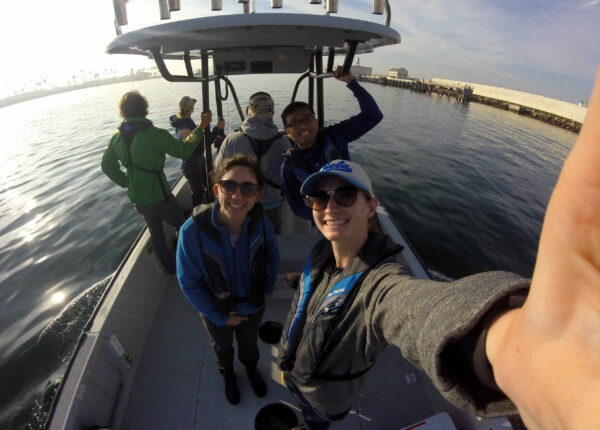Practicum Client FAQ

Become a Practicum Client
Interested in having a team of smart, motivated, senior UCLA environmental science undergraduate students solve an environmental science or policy issue for your organization? The UCLA Institute of the Environment and Sustainability (IoES) is seeking Environmental Science Senior Practicum Group Project proposals from public agencies, private sector enterprises, non-governmental organizations, and others for the 2025-26 academic year. An overview of the practicum experience and examples of past practicum projects and reports can be found here.
To suggest a potential project idea for further discussion, please contact the Practicum Director, Noah Garrison, directly at ngarrison@g.ucla.edu.
Submit a Project Proposal Here
FAQ
What are the objectives of the Practicum group projects?
The goals of the Practicum projects are to provide students with training and experience in multidisciplinary environmental problem solving in preparation for professional careers, and to provide a mechanism for students to learn important management skills, such as working as a team, developing leadership experience, managing time and financial resources, organizing, and negotiating. For the clients, our overall goal is to provide valuable information and problem solving that contributes to creating a more sustainable future for Southern California and beyond.
What attributes make for a successful project?
Students are expected to collaborate with outside clients that have a problem that can be successfully addressed and solved by the group within the timeframe of the academic year. Projects require an environment in which the students can learn to operate as an independent professional team, with client involvement appropriate to allow students to develop their own ideas and approaches, as well as healthy and professional communication and a spirit of trust and collaboration among all parties.
Appropriate topics should address current environmental problems that require significant analysis to provide a recommendation to the client and other interested parties. Projects that involve analysis of existing but unanalyzed data have been particularly successful.
Projects should, where possible, involve quantitative analysis and scientific investigation in order to reach a policy or management recommendation. It is important to keep the scope of a project realistic; projects should be manageable for a group of 7–8 seniors, spending about 25% of their time during the three academic quarters (9 months), with a limited budget. Projects that require a completion date well before June 2026 cannot be accommodated.
Ultimately, projects will be selected based on criteria that include:
- Extent to which the project embraces a real and current environmental problem that requires a solution from the student team.
- Extent to which the project poses clear environmental science, policy, or management questions.
- Extent to which the project matches expertise and capabilities of staff and faculty available to advise a student team.
- Extent to which scope and logistics of the project are feasible, given student experience and project timeline.
- Extent to which the expected financial needs of the project are met.
What resources are the client expected to provide?
Clients are expected to provide data and other information in their possession necessary for completion of a successful project. Although it is useful to have external funding for the project, either for supplies, sampling and analysis, or other requirements, this is only one of several factors in project selection, and in many cases, our projects do not require a financial commitment from the client. If the proposal clearly requires substantial resources, a funding commitment from the client may be necessary.
What is the project timeline?
After proposal development and selection, group projects are conducted in three quarters Fall (October – December) – Winter (January – March) – Spring (April – June) spanning the senior year of the students.
Fall: Students select their specific project areas and write a thorough, individual literature review of the topic, focused on the question posed by the client. Clients must commit to providing a guest speaker to introduce the topic to the senior class in September or October.
Winter: Students write formal research proposals in response to the client questions. Students present their proposals to the class, and clients are welcome to attend. Any administrative permissions for research are secured. Data collection starts.
Spring: Data collection continues. Students present preliminary results of their research and prepare a draft report for advisor comment. Project reports are finalized and the results are presented in a public forum event. Students give additional presentation to clients if desired.
